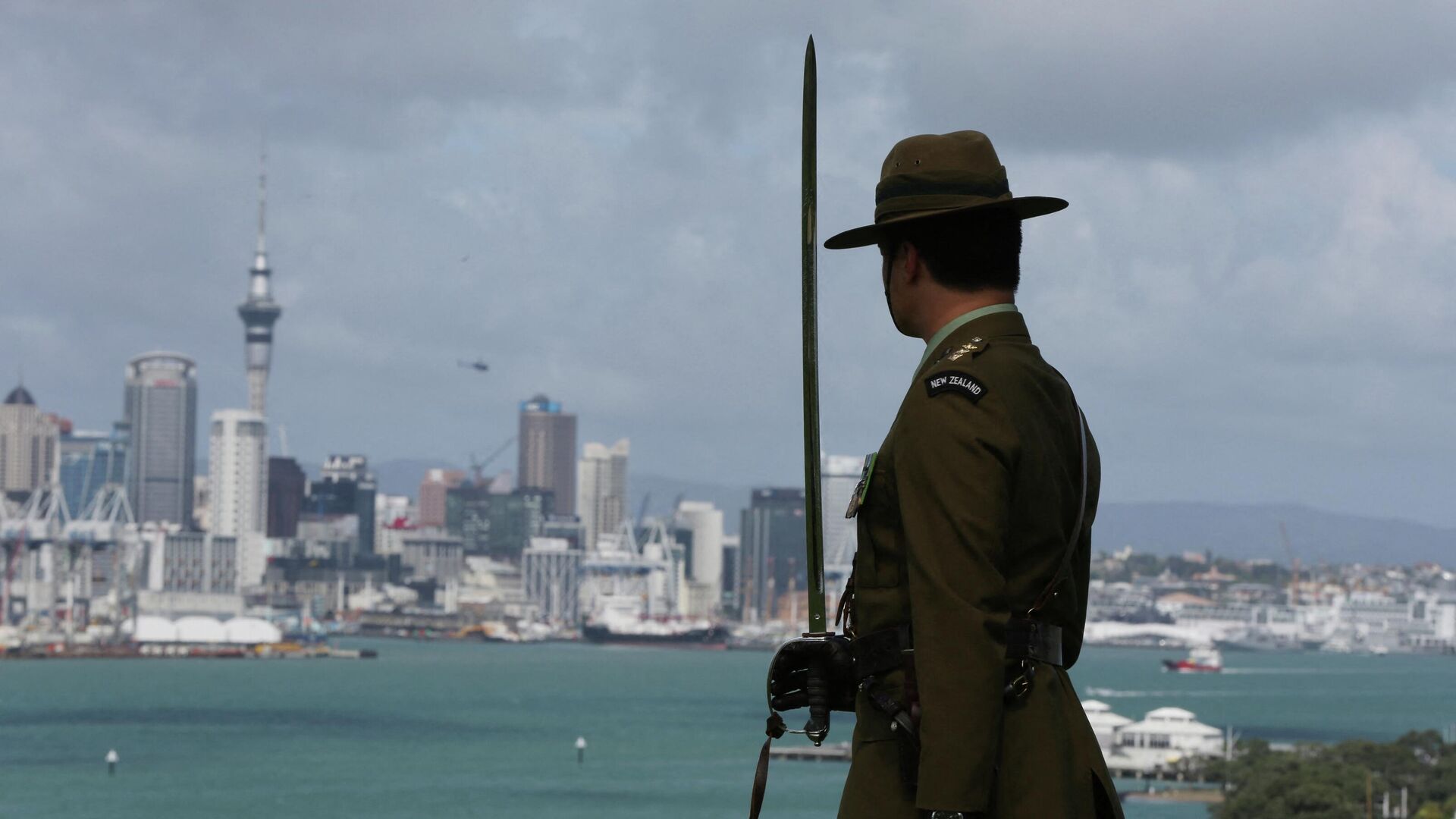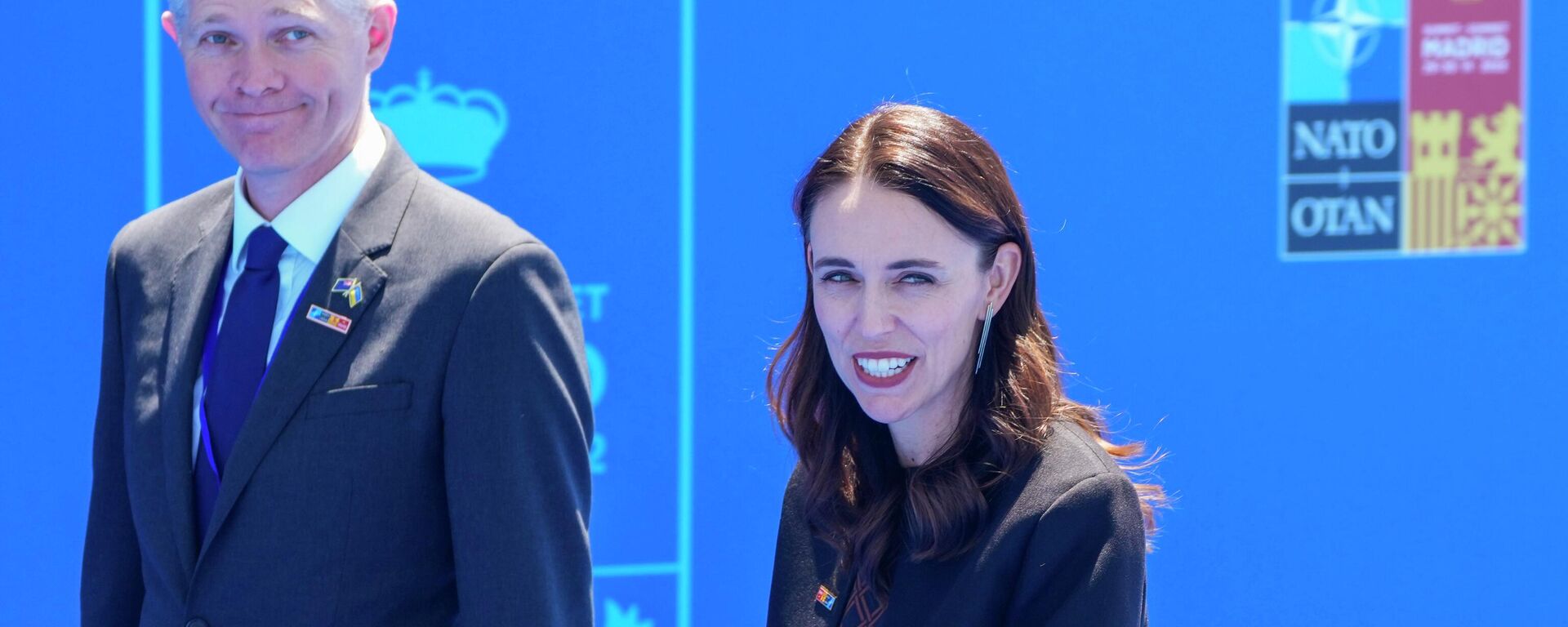https://sputnikglobe.com/20220801/us-to-deepen-military-ties-with-new-zealand-to-counter-chinas-growing-influence-in-south-pacific-1097990624.html
US to Deepen Military Ties With New Zealand to Counter China's Growing Influence in South Pacific
US to Deepen Military Ties With New Zealand to Counter China's Growing Influence in South Pacific
Sputnik International
The commitment by the US to expand defense ties with New Zealand comes as New Zealand Prime Minister Jacinda Ardern has grown increasingly critical of “growing... 01.08.2022, Sputnik International
2022-08-01T08:27+0000
2022-08-01T08:27+0000
2022-08-01T08:27+0000
new zealand
us
pacific
indo-pacific
china
https://cdn1.img.sputnikglobe.com/img/07e6/08/01/1097993932_0:0:3207:1805_1920x0_80_0_0_79f4a26c9caabb5aff4f0c7714eef4b0.jpg
Admiral John Aquilino, the Commander of the US Indo-Pacific Command (USINDOPACOM) has vowed to expand military ties with New Zealand to bolster “peace and stability” in the South Pacific region.The US general further urged that disputes in the region must be "resolved peacefully" and expressed hope that "we can continue to operate together to deliver that effect."Beijing has been critical of US involvement in the South Pacific region, holding Washington as well as Australia and New Zealand chiefly responsible for the “militarization” of the region.Describing the importance of the Pacific nations for the US, Aquilino recalled the speech Vice-President Kamala Harris gave at the Pacific Islands Forum (PIF) last month.US Vice-President Kamala Harris announced a slew of diplomatic and development initiatives to step up Washington’s role in the region at the PIF last month, in what is seen as pushback against Beijing’s outreach to the small island countries during Chinese Foreign Minister Wang Yi’s eight-nation trip in the last week of May.The PIF describes itself as the region's “premier political and economic policy” organization and comprises 18 partners, including New Zealand and Australia. The US and China are listed as the PIF’s “dialogue partners”.The US General rejected claims that the PIF was deliberately timed to counter Beijing’s overtures to the Pacific countries in the wake of unveiling of the security pact between China and the Solomon Islands as well as Wang’s eight-nation visit to the South Pacific.This is the first official visit by the USINDOPACOM commander to New Zealand, which comes amid concerns in Canberra and Wellington, as well as other western countries, over Beijing’s growing regional influence in the wake of the unveiling of the Sino-Solomon Islands security cooperation agreement in April. The draft of the agreement was leaked on social media in March and states that Chinese vessels could carry out “logistical replenishments”, “stopovers” and “transition” in the Pacific nation under the pact. The elements of the pact haven't been officially confirmed by the parties yet.Both Australia and New Zealand are treaty allies of the US under ANZUS (Australia, New Zealand and the US) and Five Eyes (FVEY) intelligence sharing arrangements, the latter also involving Canada and the United Kingdom.
https://sputnikglobe.com/20220630/militarization-of-south-pacific-not-being-fuelled-by-china-beijing-slams-kiwi-pms-nato-speech-1096832885.html
new zealand
pacific
indo-pacific
china
Sputnik International
feedback@sputniknews.com
+74956456601
MIA „Rossiya Segodnya“
2022
News
en_EN
Sputnik International
feedback@sputniknews.com
+74956456601
MIA „Rossiya Segodnya“
Sputnik International
feedback@sputniknews.com
+74956456601
MIA „Rossiya Segodnya“
new zealand, us, pacific, indo-pacific, china
new zealand, us, pacific, indo-pacific, china
US to Deepen Military Ties With New Zealand to Counter China's Growing Influence in South Pacific
The commitment by the US to expand defense ties with New Zealand comes as New Zealand Prime Minister Jacinda Ardern has grown increasingly critical of “growing strategic competition” with Beijing in the South Pacific. Ardern has claimed that a potential Chinese military presence would pose “national security concerns” to New Zealand.
Admiral John Aquilino, the Commander of the US Indo-Pacific Command (USINDOPACOM) has vowed to expand military ties with New Zealand to bolster “peace and stability” in the South Pacific region.
“All the partners in the region, New Zealand and the United States especially, work everyday to ensure the peace and stability that we enjoy continues. So, what we would like to see is to continue what we have been doing,” Aquilino said during a visit to Wellington on Monday. "The United States has been a Pacific nation our entire life. We will continue to operate in the Pacific, no matter what else you might hear. We will operate in areas where international law allows us to preserve peace, prosperity and expansive relationships in the Pacific."
The US general further urged that disputes in the region must be "resolved peacefully" and expressed hope that "we can continue to operate together to deliver that effect."
Beijing has been critical of US involvement in the South Pacific region, holding Washington as well as Australia and New Zealand chiefly responsible for the “
militarization” of the region.
Describing the importance of the Pacific nations for the US, Aquilino recalled the speech Vice-President Kamala Harris gave at the Pacific Islands Forum (PIF) last month.
“The leadership that New Zealand and Australia show in the South Pacific region is critically important. It helps us deliver things those South Pacific nations need and want,” he noted.
US Vice-President Kamala Harris announced a slew of diplomatic and development initiatives to step up Washington’s role in the region at the PIF last month, in what is seen as pushback against Beijing’s outreach to the small island countries during Chinese Foreign Minister
Wang Yi’s eight-nation trip in the last week of May.
The PIF describes itself as the region's “premier political and economic policy” organization and comprises 18 partners, including New Zealand and Australia. The US and China are listed as the PIF’s “dialogue partners”.
The US General rejected claims that the PIF was deliberately timed to counter Beijing’s overtures to the Pacific countries in the wake of unveiling of the security pact between China and the Solomon Islands as well as Wang’s eight-nation visit to the South Pacific.
“The Pacific Island Forum was set by the Pacific nations. So, the timing was the timing,” he said.
This is the first official visit by the USINDOPACOM commander to New Zealand, which comes amid concerns in Canberra and Wellington, as well as other western countries, over Beijing’s growing regional influence in the wake of the unveiling of the Sino-Solomon Islands security cooperation agreement in April.
The draft of the agreement was leaked on social media in March and states that Chinese vessels could carry out “logistical replenishments”, “stopovers” and “transition” in the Pacific nation under the pact. The elements of the pact haven't been officially confirmed by the parties yet.
Both Australia and New Zealand are treaty allies of the US under ANZUS (Australia, New Zealand and the US) and Five Eyes (FVEY) intelligence sharing arrangements, the latter also involving Canada and the United Kingdom.


